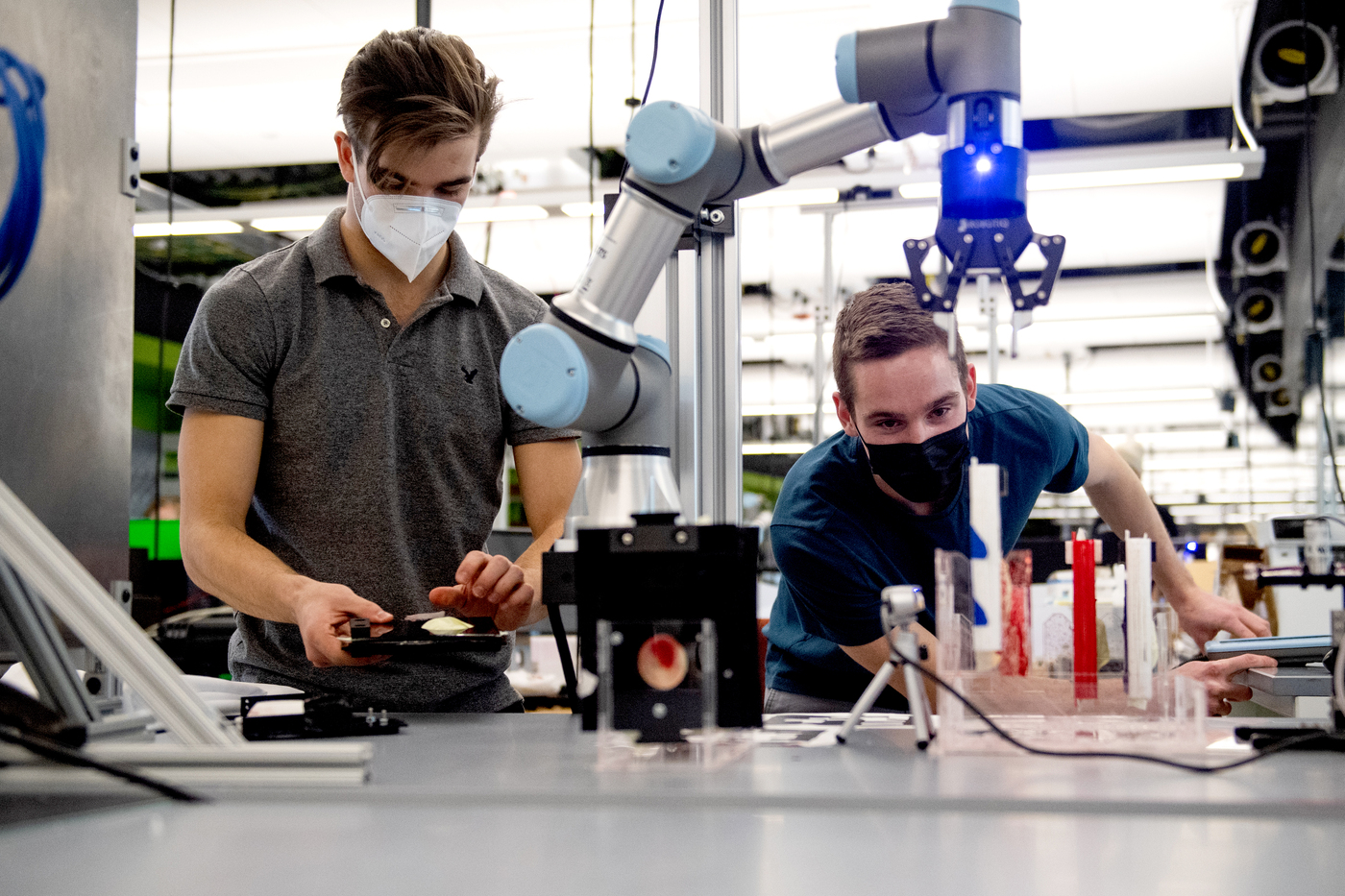
Precise Air-Sealing Robot for Inaccessible Spaces (PARIS)
Precise Air-Sealing Robot for Inaccessible Spaces (PARIS)
PARIS was a finalist in the American Made Challenges E-Robot Competition! The team was selected as a Finalist after their Phase One showcase. During Phase Two, PARIS was iterated upon with a brand-new model, seen here. Additionally, the team produced two videos and staged a virtual demonstration for PARIS.
Retrofitting small residential buildings is the largest and most cost-effective decarbonization opportunity for the state of Massachusetts, as they comprise over 60% of statewide building sector emissions. Uninsulated, leaky attic crawlspaces are a major source of heat loss, contributing up to 15% of heating/cooling costs. However, retrofitting these spaces poses many challenges as they may be inaccessible, crowded with obstacles, and contain hazardous materials (e.g., vermiculite in existing insulation) and electrical hazards from wiring remnants.
To address these challenges, the team will develop a Precise Air-sealing Robot for Inaccessible Spaces (PARIS), which can traverse over ceiling joists, create a 3D feature map existing conditions via sensor fusion, and seal identified gaps with spray foam sealant. The platform will be available commercially for under $10,000 and its autonomy will allow workers to complete other retrofit tasks while PARIS is in operation. The team will validate PARIS via increasingly more challenging testbeds (Phase 1: ideal environment free of obstacles / Phase 2: actual home environment).
In addition, the team will collaborate with Massachusetts Clean Energy Center and Revise, major players in home energy assessment and retrofitting in Massachusetts, for commercialization. PARIS will contribute to the objective of the E-ROBOT Prize by 1) removing human workers from hazardous attic crawlspaces, 2) generating a 3D feature map to identify gaps in need of airsealing, and 3) leveraging control of spray foam sealant for targeted air-sealing.
Affiliated Faculty: Taskin Padir in partnership with Michael Kane (Civil + Environmental Engineering, ABLE Lab)
